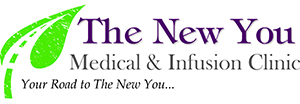Binge Eating Disorder Treatment in Colleyville, TX

Binge eating disorder is characterized by intermittent episodes of uncontrollable binges, eating an unreasonably large amount of food in a very short amount of time. Contrary to popular belief, those with Binge Eating Disorder (BED) are not always overweight and most obese people don't have the disorder. With most binge episodes happening in private, outward signs of the disorder are not always apparent. Individuals often find themselves eating large amounts of food in a short period of time, also called a binge. These episodes are sometimes triggered emotionally, though they can happen spontaneously. Post-binge, BED can leave its sufferers with a feeling of lost control and shame. These feelings can trigger more binge episodes, leaving those with BED feeling as though they are in an endless cycle. As more than 2.6% of the U.S. population experiences this condition, BED is the most prevalent eating disorder, surpassing the combined numbers (1.5%) of anorexia and bulimia combined. Because of increased awareness, more treatment options and support systems are available today.
You can find eating disorder support that works for you, today. To seek help from a healthcare professional in Colleyville that specializes in binge eating disorder treatment, call (817) 203-2760 or contact The New You Medical & Infusion Clinic online.
Binge Eating Disorder Symptoms
Since weight is not necessarily an indicator of an eating disorder, there are not always apparent physical signs or symptoms of BED. There are a number of behavioral binge eating disorder symptoms that are apparent, including:
- Eating large amounts of food in a short and specific amount of time
- Eating even when uncomfortably full or when not even hungry
- Eating rapidly during binge episodes
- Often eating alone or in secret
- Hoarding food or hiding empty food containers
- Regularly dieting, usually without weight loss
There are also many emotional symptoms that accompany binge eating disorder. These include:
- Lack of control, especially when eating or during a binge
- Depression
- Grief
- Anxiety
- Shame
- Disgust or self-hatred, particularly about eating behaviors
Unlike bulimics who need to purge after a binge, binge eaters try to eat normal meals following a binge. However, this often leads to restricting food and thus triggers more binge eating, resulting in a vicious cycle. These adverse emotional ramifications can spill over into other areas of life for a binge eater, affecting school, work and interpersonal relationships. When individuals are overweight and obese from the poor eating habits of BED, physical symptoms can present with complications which include:
- Diabetes
- High blood pressure
- High cholesterol
- Gallbladder disease
- Heart disease
- Shortness of breath
- Certain cancers
- Menstrual problems
- Decreased mobility and sluggishness
- Sleep problems, including sleep apnea
Treatment for Binge Eating Disorder
Though it can be a sensitive topic, one you may hesitate to discuss, it's important to talk to your healthcare provider if you suspect that you or a loved one may have BED. Binge eating disorder treatments include:
- Cognitive Behavioral Therapy (CBT) - A widely-used therapy, developed specifically for eating disorders, CBT encourages the regulation of eating habits by helping binge eaters to set realistic goals, modify negative self-perceptions, use self-monitoring when eating and ultimately help reduce the frequency of eating binges.
- Interpersonal Therapy (IPT) - This therapy is useful in coping with underlying social problems. It helps individuals recognize issues with their personal relationships so that they can better resolve these feelings without the use of food as a coping mechanism.
- Dialectical Behavior Therapy (DBT) - DBT is particularly helpful in addressing a painful emotional experience and in helping binge eaters to cope with it by developing skills to reduce binge-eating habits.
- Nutritional Counseling - Nutritional counseling can help to reduce the symptoms of binge eating disorder. Most useful when combined with other forms of therapy, nutritional counseling can help binge eaters to develop skills for eating normally and maintaining recovery.
Successful recovery encompasses all facets of an individual's disorder. But recovery begins with recognizing that there is a problem and seeking treatment. To find a healthcare professional in Colleyville that specializes in binge eating disorder treatment, call (817) 203-2760 or contact The New You Medical & Infusion Clinic online.
The New You Medical & Infusion Clinic
Address
100 Grapevine HwyHurst, TX 76054
(817) 203-2760
https://www.newyoumedclinic.com/
Hours
Mon:
10:00 am - 6:00 pm
Tue:
10:00 am - 6:00 pm
Wed:
10:00 am - 6:00 pm
Thu:
10:00 am - 6:00 pm
Fri:
Closed
Sat:
Closed
Sun:
Closed

